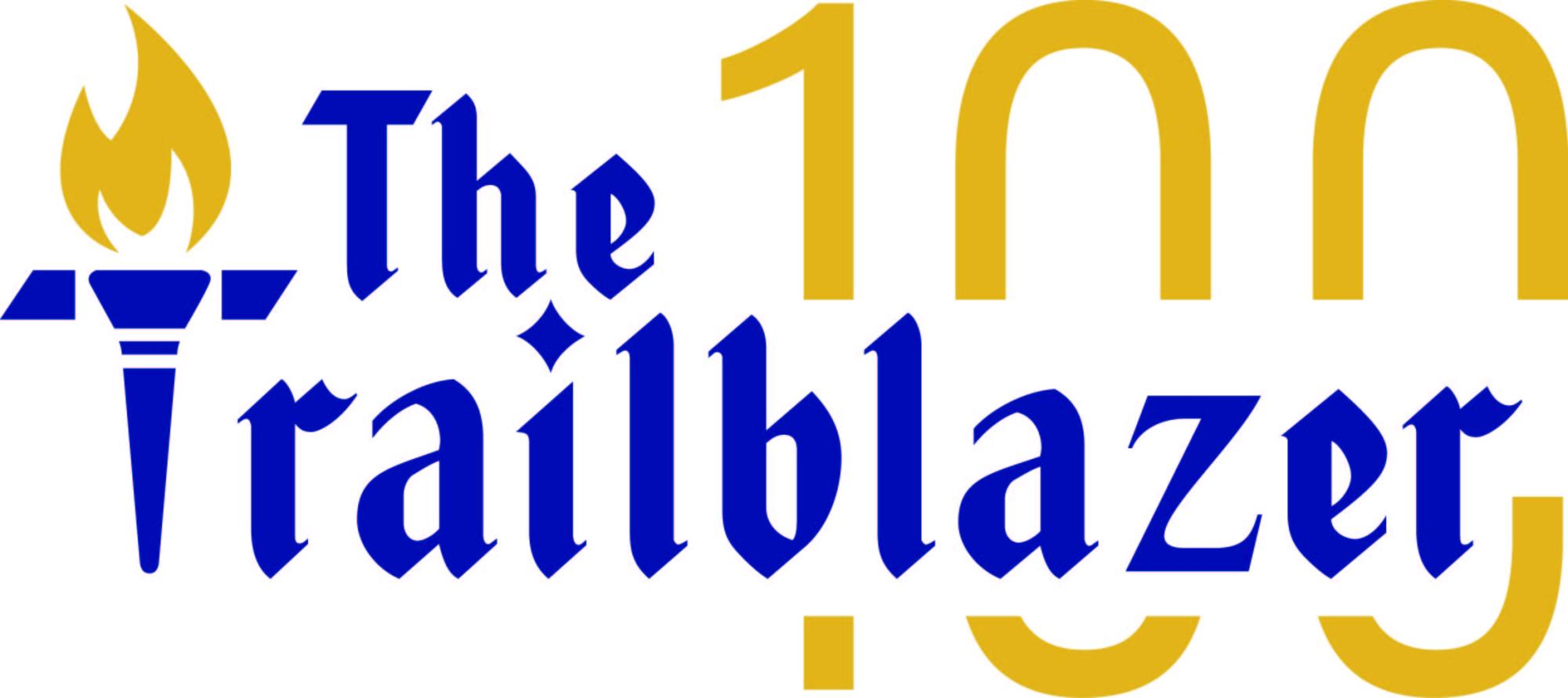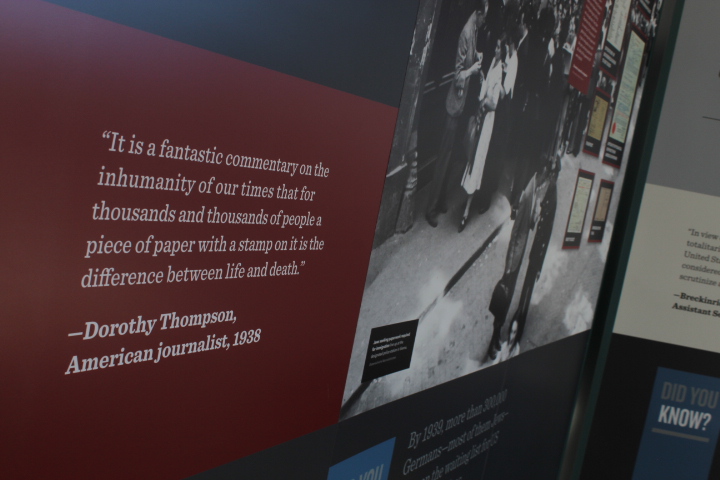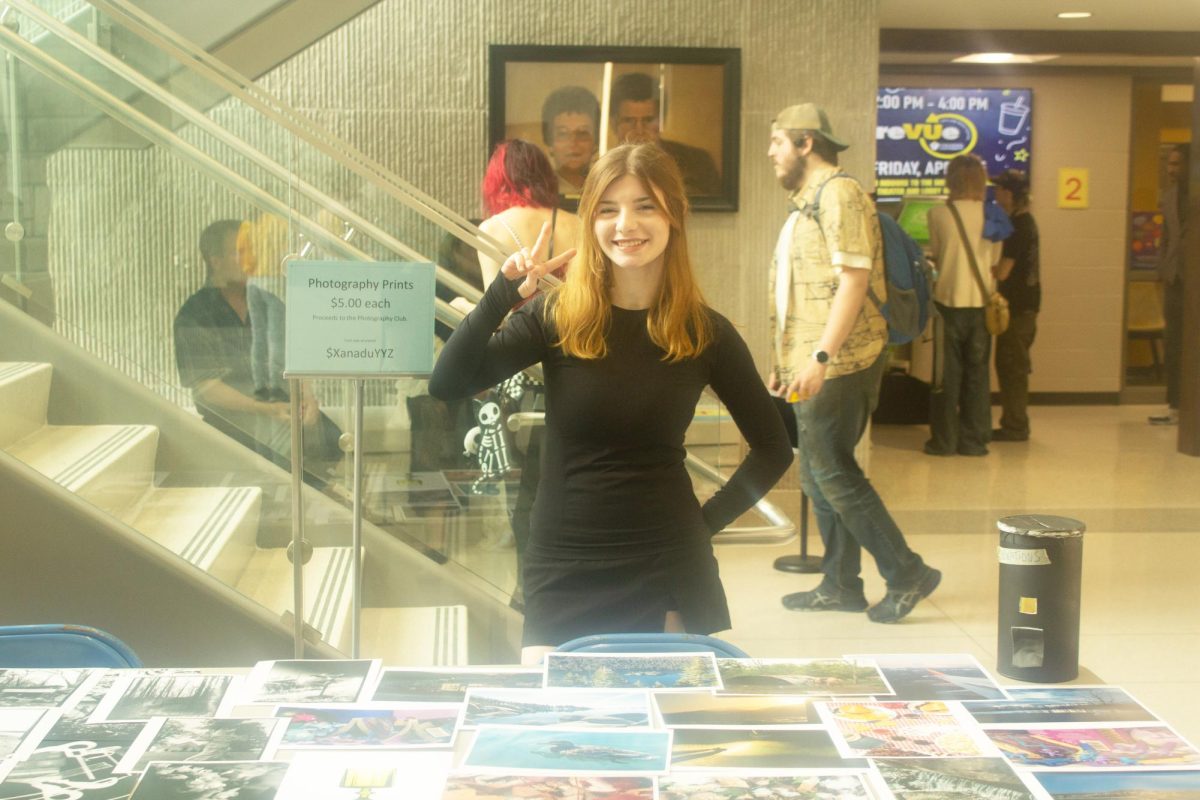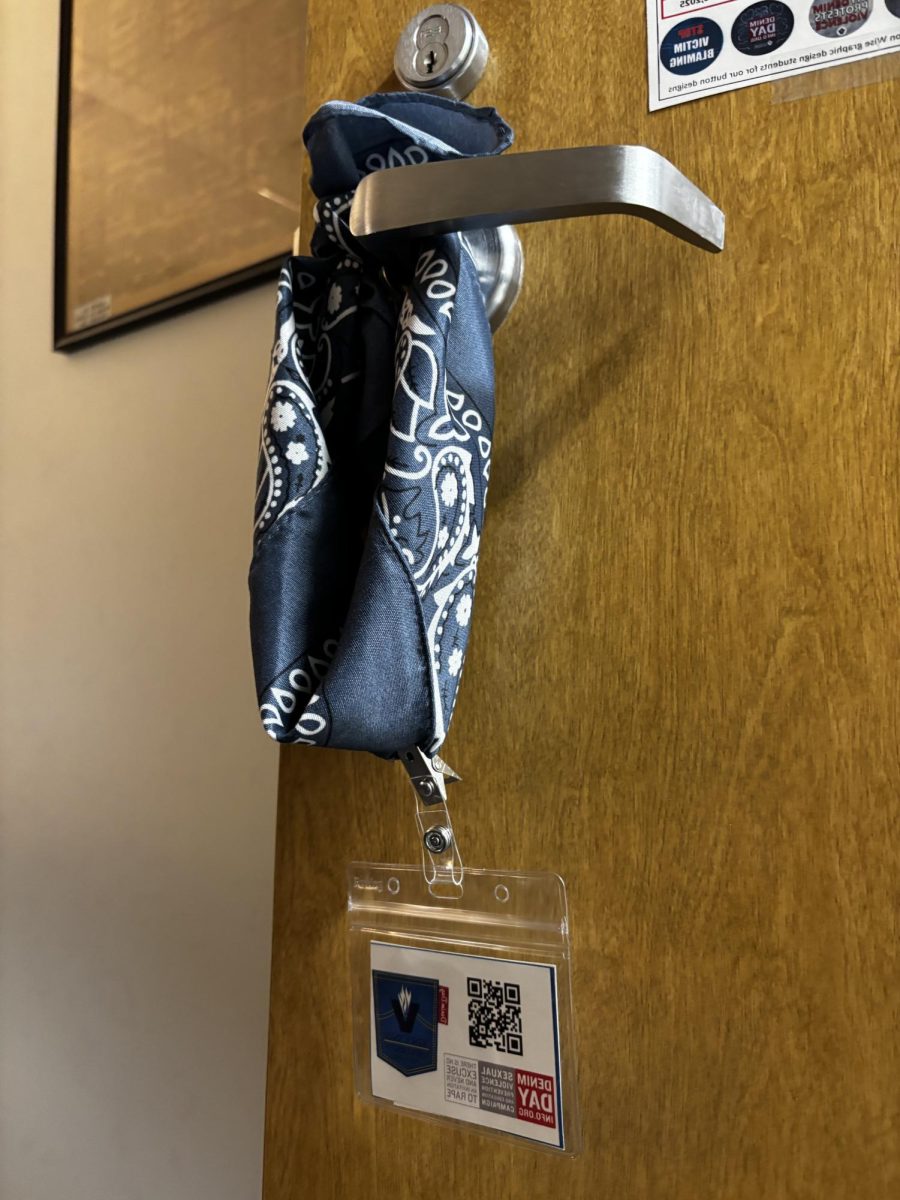The Possibility of Renewed Greek Life At VU
A look at the history and possible future of Greek life on campus
A clock tower dedicated by the Sigma Pi Fraternity still stands on campus, though the organization is no longer active at VU.
December 7, 2021
Many colleges and universities are mostly known for their academics or athletic teams, while others are known for their massive engagement with social aspects of Greek life on campus.
Greek life, also known as fraternities for men and sororities for women, are usually seen at four-year universities and can rarely be seen at two-year universities.
Whether it’s on a college sitcom on the TV screen or just friends talking about the excitement of starting a new journey into college, Greek life has always been a topic of conversation among students.
So why is there no active Greek life currently at Vincennes University?
The fraternity Sigma Pi actually got its start on the VU campus many years ago.
Sigma Pi was founded on February 26, 1897. Sigma Pi’s original name was Tau Phi Delta and according to their website, “Tau Phi Delta possessed the characteristics of a fraternity chapter. It was strictly secret and possessed a password and a grip and included an initiation ritual. Its badge was a simple black shield, with a border of gold, upon which were displayed the Greek letters ΤΦΔ.” In the winter of 1903, the fraternity rented a small building on UVU campus establishing it as their chapter house. They officially changed their name to Sigma Pi in 1907.
In 1984, Sigma Pi legally became Sigma Pi Fraternity International.
According to Brad Ferguson, who is on the board of the Sigma Pi Organization, the national fraternity withdrew its affiliation with the university in 2007.
“I was president when we disaffiliated with Vincennes University. Vincennes University is a two-year school; we are the only national fraternity on a junior college campus because we were founded at Vincennes,” he said.
Ferguson said that around 2007, Sigma Pi withdrew their affiliation from VU because of their differences in the recruitment process.
He added that it was a mutual decision to disaffiliate, and that Sigma Pi has nothing but respect for VU. Any male on or off VU campus can still join the Sigma Pi Fraternity even though it is no longer affiliated with the campus.
Ferguson said there were three sororities on the VU campus when he was president of the fraternity and said that the Panhellenic guidelines state that sororities are not allowed on two-year campuses.
Although VU doesn’t have any social Greek life on campus, the university does have academic service clubs with Greek letters. One service club at VU is Eta Sigma Iota; it’s an organization on campus for homeland security and public safety majors.
VU President Charles “Chuck” Johnson sat down with The Trailblazer to talk about the possibility of renewing Greek life on campus. His main mission is to oversee the university and promote student success and safety, he said.
“Historically, Greek life has been a part of four-year universities. Although we have relatively new four-year bachelor’s degree programs, VU is still predominantly a two-year school. That doesn’t mean that there aren’t academic or honorary organizations that have Greek letters. I think the number of clubs that we have already could expand with student interest. We certainly want to make sure all students who come to VU have an outlet on campus to get engaged and develop life-long friendships and develop opportunities that will take them to their future goals,” Johnson said.
As it stands now, Greek life isn’t a part of VU because of a few key concerns about Greek life’s ability to sustain itself, and the aspects of Greek life that need to be thoroughly addressed, Johnson said.
“Never say never, I think there would be some issues that would have to be addressed, like how the organizations are structured, whether they have a national affiliation, what’s been the history of the organization in terms of precedents elsewhere. The biggest obstacle would be because of the turnover of our student population. We can’t grow the senior leadership that’s usually recognized in fraternities and sororities that will help the organizations to manage themselves, their activities, their funds, and everything else. That senior leadership potential would be a difficult thing for VU to be able to pull off,” Johnson said.
He added, “My understanding is that most institutions, if not all institutions, are externally funded; they provide their own funding. Whether it’s for the house, for the upkeep of the house, those are typically not funded by the university, so they would probably need to start their group externally and then add the institution for recognition. They need to show that they are self-sustaining and then petition the university for recognition through the Dean of Students office, which will then most likely go through different levels of review and approval.
“I think the conversations around Greek life are a mixed discussion. There are many positive social aspects of Greek life but there are also many discussions that have arisen about hazing, underage drinking in Greek life establishments…I see some of the benefits and also some of the risks of Greek life. I also think that many benefits can stand out through students and clubs. The main goal is creating relationships with fellow students, giving them opportunities to take on some leadership roles, and help make the university more vibrant,” he added.
With the necessary precautions and the critical devotion needed to run an efficient and self-sustaining institution, VU could potentially see the spark of social Greek life reignited here on campus.






covey detmer • Dec 9, 2021 at 2:50 pm
Great thoughts. The University President is not wrong on a number of challenges Fraternal Organizations face at VU. I am a proud member of Sigma Pi and still devoted to the organization today. As it stands I believe Sigma Pi and Vincennes University are better off keeping their current relationship. Sigma Pi alum embrace VU, and I know many VU faculty embrace Sigma Pi but until there is a faculty office dedicated to cultivating a healthy Greek life with National Sororities and Fraternities recognized by the University it is best both parties stay separate for everyone’s sake.
As it stands now National Sororities wont allow expansion to a “predominantly” 2 year University. Most National Fraternities share this idea as well. The only reason Sigma Pi was allowed to be re-chartered in 1965 was due to the dedicated work of alumnus Curtis G. Shake. He successfully petitioned the NIC (North American Interfraternal Council) to allow National Fraternities and it would be hard pressed for VU to convince National Fraternities to expand at VU. Many National Fraternities wouldn’t place a push pin on there expansion boards at VU due to the exact issues the president raises. All of these reasons mentioned by the president are valid (lack of leadership, lack of dedicated seniors) Sigma Pi at VU is unique because it was a founding chapter and has a team of dedicated alumni who remain actively involved. This means the undergraduates have enough adult mentoring from volunteers to be pro-active with ensuring the undergrad members act in a way that is appropriate for both standards of VU and Sigma Pi. It also means the National Office has a vested interest in keeping the chapter open for historical sake but mainly because the alumni volunteers that help Sigma Pi at VU are some of the most dedicated in the entire International Organization.
Current Sigma Pi members and alumni are some of the most active in the VU Alumni community. This is a major benefit to Greek life on campuses across the country. I enjoy the relationship as it stands between VU and Sigma Pi. Sigma Pi’s are still held to a higher academic standard required to remain in school and they still find ways to give back to the community.
Either way I want the best for VU, Sigma Pi, and any other Greek organization involved with the campus. I contribute a fantastic undergrad BS and AS degree to VU and Sigma Pi for life long connections I still treasure today. My undergraduate and post VU life has been fulfilling from both VU and Sigma Pi.
E. Andrew Morris • Dec 9, 2021 at 12:38 pm
I am the Past Executive Director of Sigma Pi Fraternity and lived in Vincennes for eleven years. I was also elected the 45th Grand Sage in 2014 to over see the representation of the 231 chapters in North America.
The over 110,000 alumni learned about Vincennes University and proud of the history between the university and organization.
Many fraternities today are severing ties with host institutions that doesn’t help the goals of either party in developing good alumni.
Sigma Pi Fraternity, International has a Constitution and Bylaws that each member has to abide by to be in good standing. The university also has rules and standards to be student at VU.
If there is cooperation between the fraternity and university each can achieve the goals each want from the students.
The success of any chapter is dependent on the alumni in enforcing the rules and standards.
Respectfully
E. Andrew Morris
Murray State University 1970